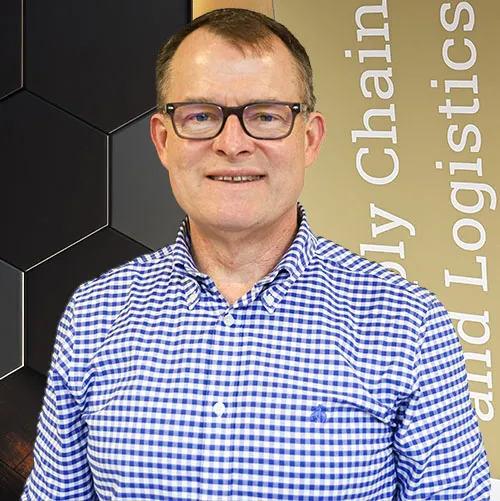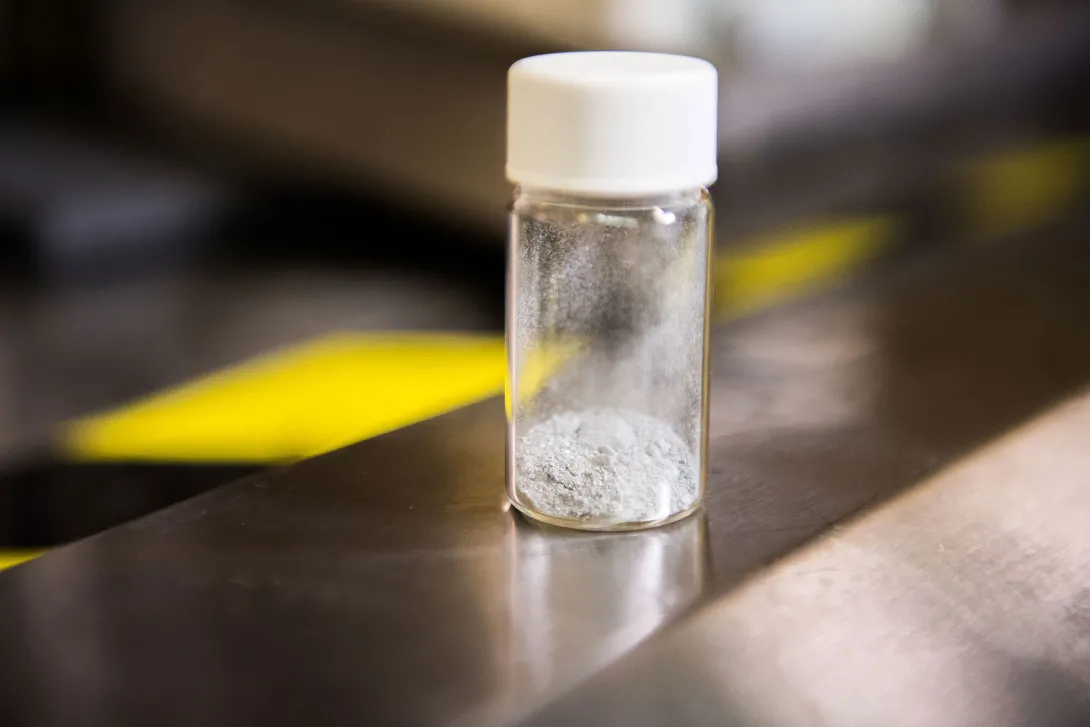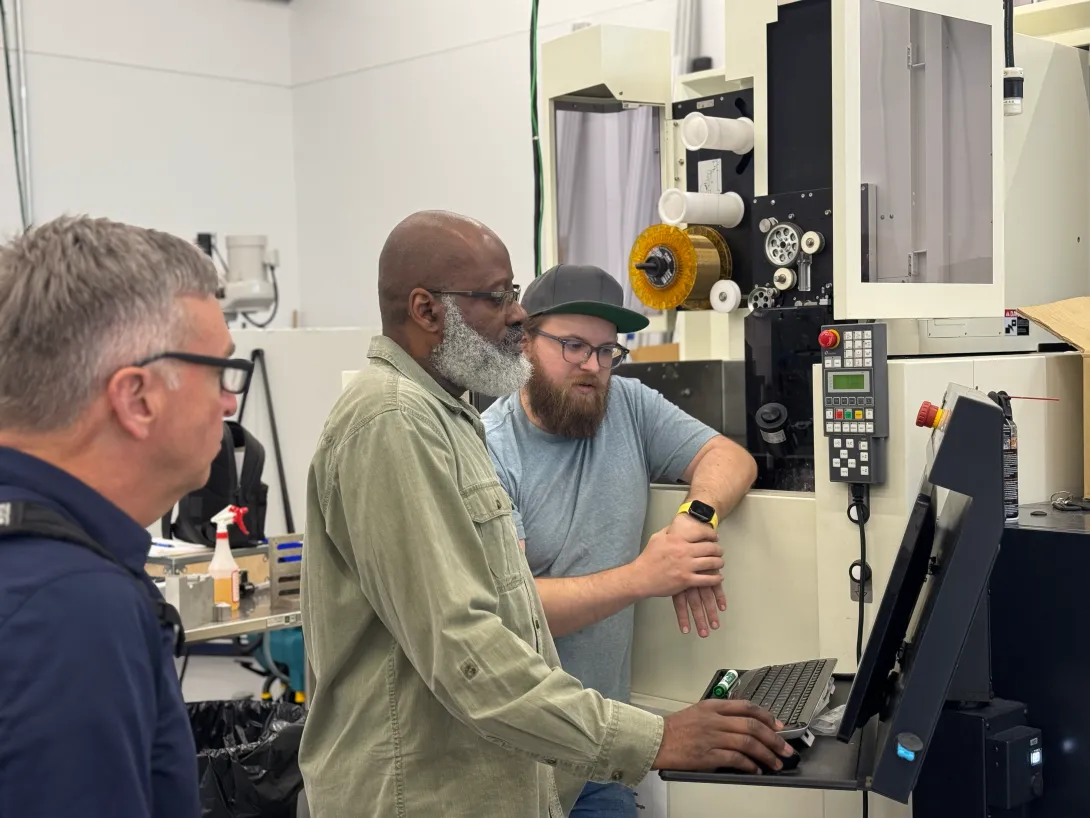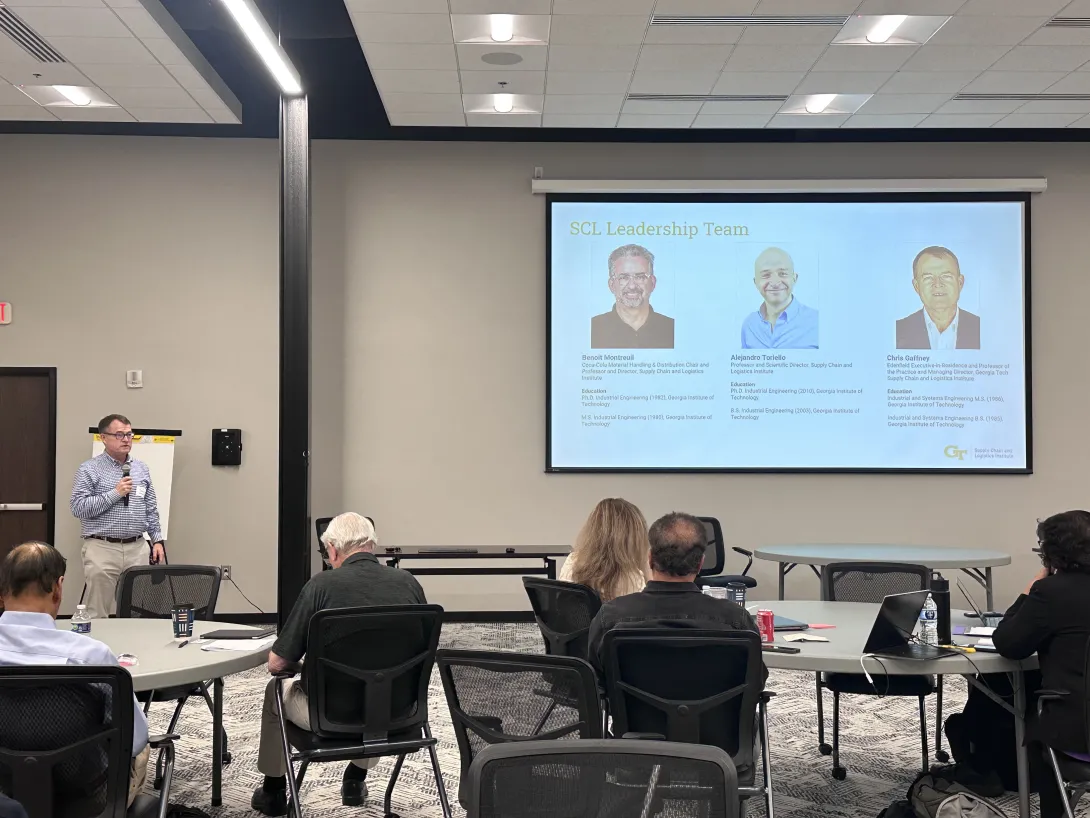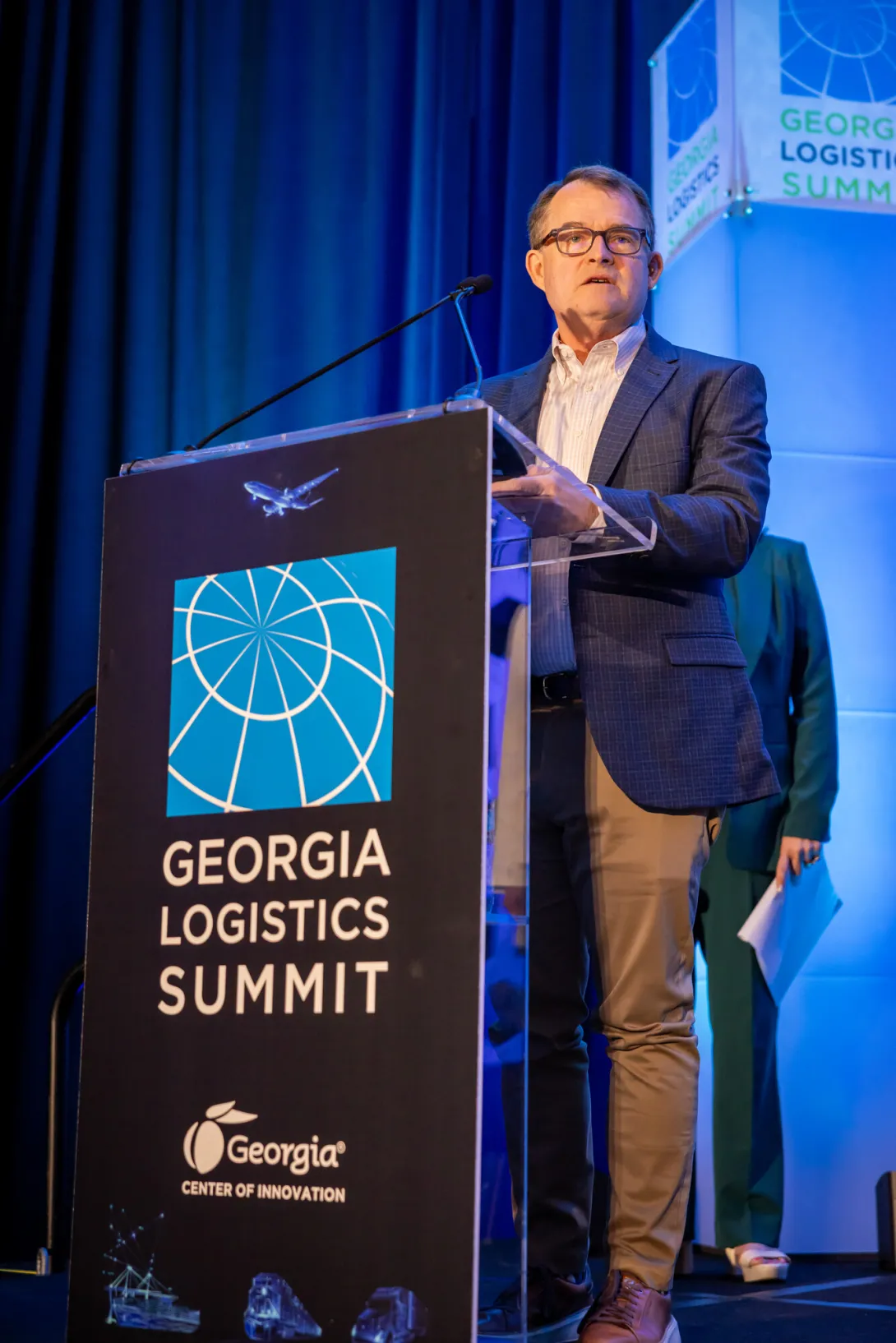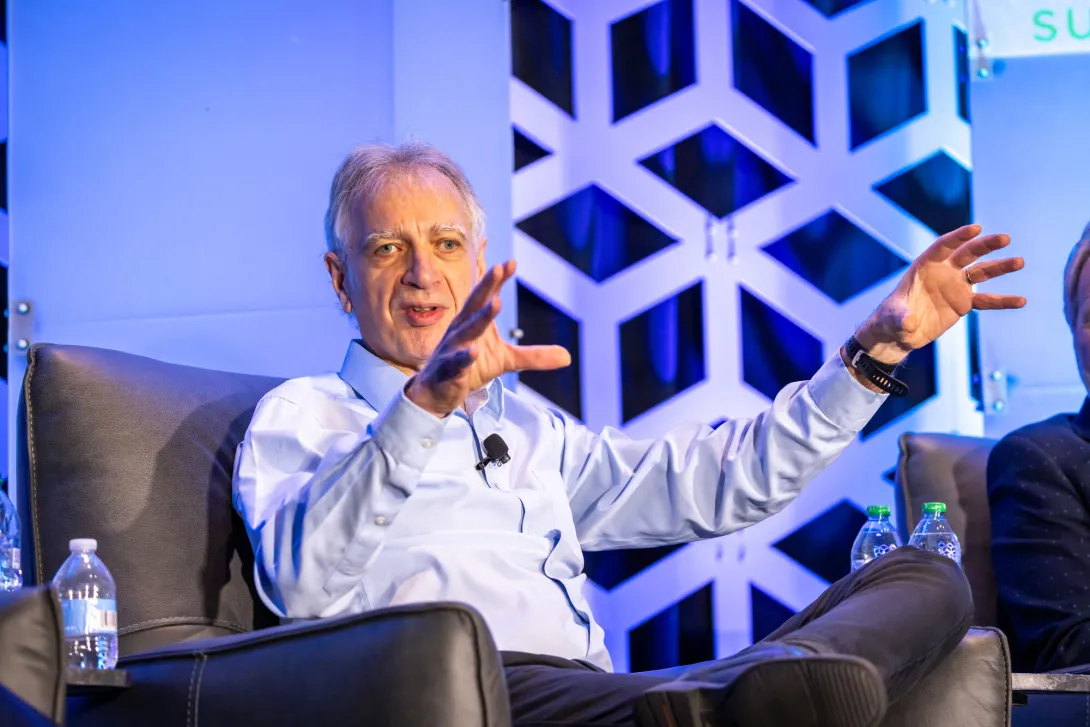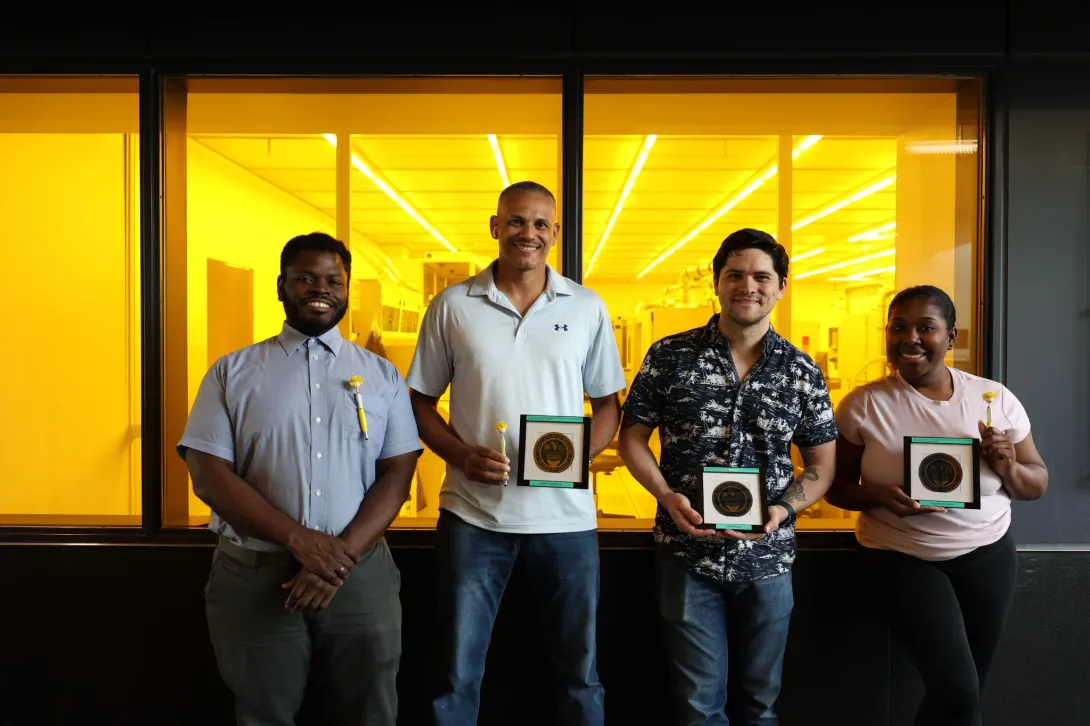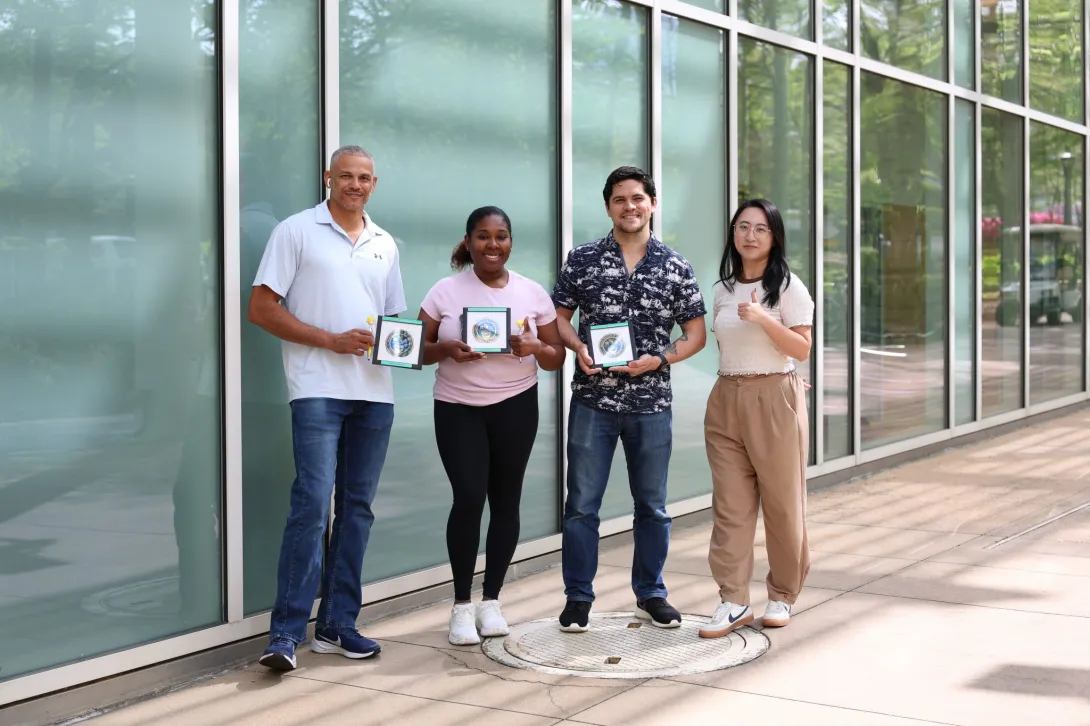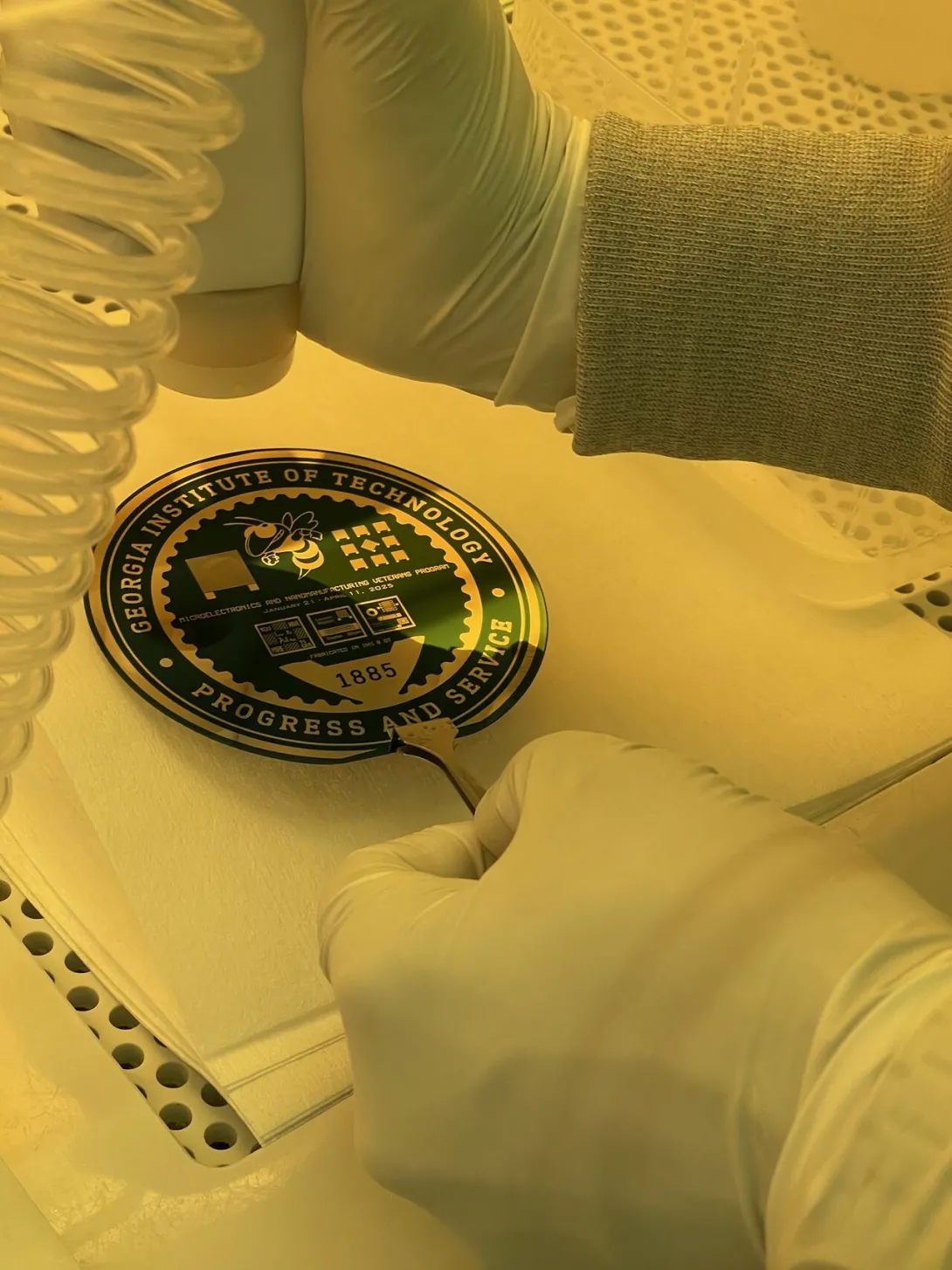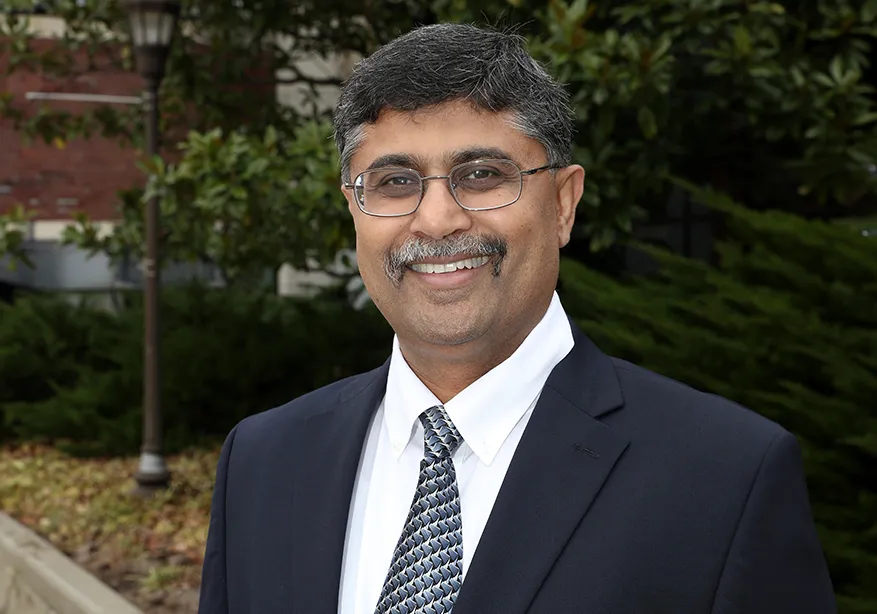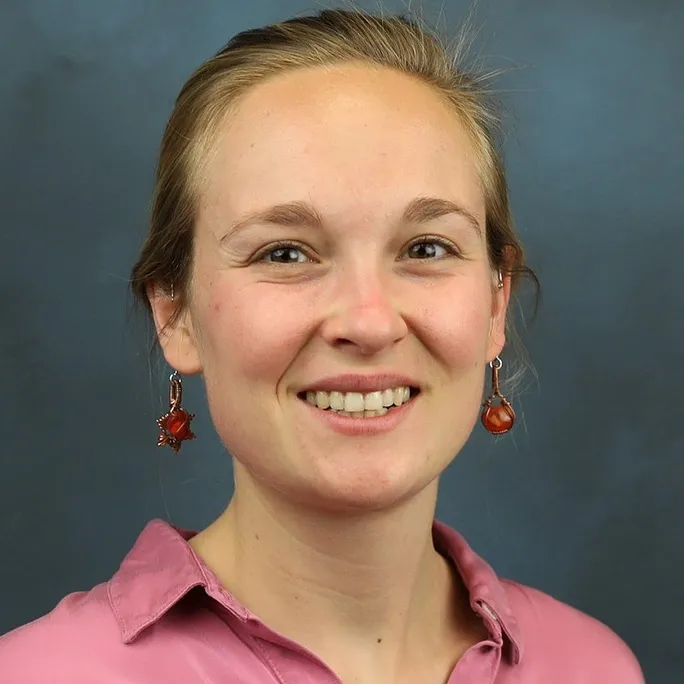Jun. 23, 2025
I want to recommend a book that I think is especially timely for anyone working in, studying, or simply trying to understand today’s supply chain landscape. Peter Goodman’s How the World Ran Out of Everything takes you inside the global disruption we all lived through — but it also challenges some of the assumptions we've made about how supply chains are supposed to work.
This isn’t a technical manual. It’s a well-researched, human story — with frontline accounts from truckers, factory workers, port operators, and business leaders — and it puts real names and faces behind the headlines. For those of us who’ve been in this field for a while, many of the companies and consultants referenced will be familiar. I’ve worked in and with those same types of organizations, and I’ll say this plainly: so much of what happens in supply chains comes down to incentives. And that’s a thread this book pulls on again and again.
Why I Think It’s Worth Reading Now
It lays bare the tension between short-term profitability and long-term resilience.
That balance is hard — even for well-run companies. This book doesn’t offer easy answers, but it helps you see the tradeoffs more clearly.
It’s realistic about reshoring and nearshoring.
Yes, they’re happening. But unless you’re Walmart or a top-tier buyer, they’re not easy plays. The book does a good job showing why that’s true.
It tackles the complexity of working with China.
Like many of you, I’ve been in conversations where we talk about moving away from China — and then realize how difficult (and costly) that would be. This book captures that paradox well: we can’t live with them, but we can’t live without them either.
It reminds us that behind every system are people.
This part resonated with me. From seafarers stuck at sea to small businesses trying to stay afloat, it brings the human side of supply chain to the forefront.
Who Might Enjoy This
- Practitioners thinking about how to build more resilient systems
- Early-career professionals who want to see how theory meets practice
- Anyone who wants a thoughtful, readable entry point into the “why” behind the supply chain headlines
As we explore new solutions — whether AI, circular supply chains, or new sourcing strategies — it's worth pausing to ask: what were we solving for before? And are the incentives any different now?
This is a good summer read to help frame that discussion.
News Contact
info@scl.gatech.edu
Jun. 17, 2025
Sowmya Ananthachary is Vice President of Software for the Americas region at Dematic. In this role, Sowmya leads Dematic’s software strategy, overseeing the development, implementation, and optimization of software solutions. Working closely with cross-functional teams and key partners, Sowmya ensures Dematic’s software strategy aligns with business objectives, market demands, and customer needs.
Ms. Ananthachary brings a wealth of experience in enterprise software and cloud technologies to the SCL Advisory Board. She has a proven track record of building and mentoring high-performing global engineering teams and driving large-scale strategic initiatives. Her leadership has played a key role in delivering transformative, cloud-based enterprise applications and advancing digital solutions in the supply chain space.
“I’m honored to join Georgia Tech’s SCL Industry Advisory Board,” said Ms. Ananthachary. “As someone deeply passionate about the future of supply chains, I’m inspired by the SCL team’s commitment to innovation, education, and impact. I look forward to learning, contributing, and collaborating with this exceptional community.”
Ms. Ananthachary holds an MBA from Georgia State University and a Bachelor of Science from the National Institute of Technology Jamshedpur. She brings both technical expertise and a strategic business perspective to her advisory role.
Jun. 05, 2025
Aluminum scrap is one of the most common materials found on military bases and aircraft carriers worldwide. Now, the U.S. Army has tapped Georgia Tech to help turn that waste into power that can be generated off the grid and on demand.
The Army Research Office awarded Georgia Tech and its partners $20 million to develop scalable, efficient methods for transforming aluminum into hydrogen energy. The project could lead to a new, low-cost, clean, and efficient energy source powered by discarded materials.
Aaron Stebner, professor and Eugene C. Gwaltney Jr. Chair in Manufacturing in the George W. Woodruff School of Mechanical Engineering and professor in the School of Materials Science and Engineering, will oversee the multi-year effort at Georgia Tech together with Scott McWhorter, lead for Federal Initiatives at the Strategic Energy Institute.
In addition to several team members from Georgia Tech and the Georgia Tech Research Institute, the project includes researchers from Fort Valley State University, the 21st Century Partnership, MatSys, and Drexel University.
“Aluminum already reacts with water — even wastewater and floodwater — to create hydrogen gas, power, and thermal energy,” McWhorter said. “If aluminum can be efficiently upcycled into stored energy, it could be a game-changer.”
The team’s goal is to experiment with aluminum’s material properties so it can be inexpensively manufactured to create a highly effective reaction that produces low-cost, clean hydrogen.
“Having this ability would allow military bases to be less dependent on the use of a foreign country’s electrical grids,” said Stebner, who is also co-director of Georgia Artificial Intelligence in Manufacturing and faculty at the Georgia Tech Manufacturing Institute.
Manufacturing Aluminum
Several years ago, the Army Research Lab discovered and patented the basic technology for recycling aluminum to produce hydrogen gas. However, current manufacturing methods require too much energy for the amount of hydrogen energy produced.
To make the technology viable and effective, Stebner and his colleagues will research alternate manufacturing processes and then develop automated methods for safely producing and storing stable aluminum. They also plan to optimize these processes using digital twin technologies.
Currently, manufacturers use large machines to grind up and tumble the aluminum in very controlled environments, because stray aluminum powder can be explosive. These methods are very costly.
Stebner and the team are looking into small, modular technologies that could allow for convenient, onsite energy generation. According to Stebner, they are interested in determining how these smaller machines could be so efficient that they could be powered using solar panels.
Stebner envisions that a field of solar panels could power the aluminum-processing modules — the aluminum recycling could be done while the sun shines and produce power 24/7.
Sustainable Impact
Once they have developed the manufacturing techniques and processes, the team plans to test their efficacy by generating power for rural Georgia communities. Success here would prove the technology could be viable for military deployments and other off-grid scenarios.
“The Deep South — especially middle and southern Georgia, Alabama, Mississippi, and Louisiana — often has enormous energy disruptions during hurricanes or power outages due to flooding and severe rains,” Stebner said. “Manufacturers can be hesitant to build big plants there, because the grids aren’t as stable. This same technology that the Army plans to use for remote military bases could be a game-changer in rural Georgia.”
If power is unexpectedly cut in those areas, floodwater could then be used to make hydrogen gas. While hydrogen has not yet had its day in the sun, it has great potential as an alternative to fossil fuels, Stebner says.
“From a sustainability perspective, any time you can take something that’s already waste — like scrap aluminum and wastewater — and turn it into a high-value product that can be used to power communities, that is a huge win.”
Funding: Army Research Office
May. 28, 2025
Thomasville, Georgia, is a hub of training and talent for local manufacturers. But Mason Miller could tell there was something missing.
“We didn't have any training for advanced manufacturing in our area,” said Miller, vice president of Academic Affairs at Southern Regional Technical College (SRTC), which offers education and training programs in technical and manufacturing fields. “Companies had to go out and recruit people from Michigan to run their machines. That's when we said, ‘We don’t want that to happen — we need to be doing that right here.’”
That’s where the Georgia Tech Manufacturing Institute (GTMI) stepped in. Working with partner program Georgia Artificial Intelligence in Manufacturing (Georgia AIM), GTMI helped connect SRTC with the resources and expertise needed to develop a robust training program tailored to the needs of local manufacturers.
Miller said at first, he was skeptical. “When GTMI said they wanted to be partners, I thought, ‘OK, this is another situation where we're going to talk for a minute, everybody says things and then goes away — and that’s it,’” said Miller. “That's not how it's been at all.”
Rather, it’s been a true partnership driven by SRTC, with curriculum focused on automation and robotics developed by the Technical College System of Georgia and GTMI. The curriculum is also shaped by local industry input to directly address workforce gaps in the region’s manufacturing sector.
“As a state institution, we're here to serve you,” said Steven Sheffield, senior assistant director of Research Operations at GTMI and a point person of the partnership. “Tell us the problem, and we will work hard to try to solve it with you.”
Filling the Workforce Gap
Miller was committed to giving SRTC students the advanced manufacturing skills needed to stand out in the workforce. Yet the evolving manufacturing landscape and the needs of local manufacturers revealed gaps in SRTC’s curriculum, particularly in AI, automation, and robotics.
With GTMI and Georgia AIM researchers contributing key expertise to the expanded smart manufacturing curriculum, Miller noted the partnership is “opening our eyes to what we can do with AI. We're going to start integrating that into our programs.”
Beyond AI and robotics, SRTC leadership identified a crucial gap in their program: training in precision machining, a skill that local manufacturers like Check-Mate Industries sorely needed.
“If we want to attract new business and industry to Georgia, we need to be able to show them we can provide a skilled workforce,” said Miller.
To address this missing piece, GTMI and Georgia AIM helped procure funding to acquire and refurbish precision-machining equipment from longtime partner Makino. Georgia AIM also supported the renovation and outfitting of two SRTC lab spaces with additional updated equipment.
Last fall, SRTC launched its new Precision Manufacturing & Engineering and Manufacturing Engineering Technology programs, with instructors trained by GTMI faculty in precision manufacturing. The new program at SRTC is one example of the ways GTMI experts are working with communities across the state to expand access to training and new technology.
“Not a lot of technical colleges have this type of machinery,” said Marvin Bannister, SRTC precision machining and manufacturing program chair. Instructors like Bannister received specialized training at GTMI’s Advanced Manufacturing Pilot Facility to ensure they felt confident teaching students how to operate the machinery. “Not only is it something else to add to my skill set, but the most important thing is that I'll be able to train other students who desire to learn on a machine like this.”
Because of SRTC’s expanded offerings, the technical college has strengthened partnerships and developed new internship programs with local manufacturers. “We all want the same thing,” said Miller, “which is to grow industry partnerships and to create a talent pipeline for our state.”
GTMI and Georgia AIM also support STEM programs with Thomasville area schools and internship programs for K-12 teachers with local manufacturers such as Check-Mate. These efforts deepen the connections between students and manufacturers, opening doors to future careers in the sector.
“We’re here to connect the dots and enable these types of partnerships,” says Steven Ferguson, a principal research scientist with GTMI and co-director of Georgia AIM. “When teams and their networks come together to solve a challenge for just one manufacturer, the impact can reach across an entire region.”
News Contact
Audra Davidson
Research Communications Program Manager
Georgia Tech Manufacturing Institute
May. 12, 2025
Last month, I had the opportunity to represent Georgia Tech SCL at the joint GEMs-GRACE workshop in Macon, hosted by partners from Georgia Tech, the Georgia Mining Association, and the Middle Georgia Regional Commission. The event brought together 70 participants from 36 organizations across economic development, academia, national labs, non-profits, and industry—underscoring the importance and growing momentum around critical mineral development in our region.
The agenda featured a strong lineup of speakers covering use-inspired R&D, workforce development, translation and commercialization, and ecosystem sustainability. Highlights included insights from leaders at the Strategic Energy Institute, Georgia Cleantech Innovation Hub, Savannah River National Lab, Southern Company, and others. I contributed a perspective on the critical role of supply chain design in optimizing the development of any new critical mineral supply chain—ensuring we design networks from the start that are scalable, resilient, and efficient.
Perhaps the most valuable elements of the day were the breakout sessions and informal networking, where participants explored how we can collectively advance resource development with greater speed, innovation, and shared benefit. The level of engagement and openness to collaboration was impressive.
We’re now turning our attention to shaping a full proposal to support this initiative, and I’m encouraged by the alignment and energy coming out of this session. Many thanks to Dr. Yuanzhi Tang and the organizing team for bringing this community together in such a purposeful way.
Chris Gaffney
Managing Director, Georgia Tech Supply Chain and Logistics Institute
News Contact
info@scl.gatech.edu
Apr. 30, 2025
In the world of supply chain management, we spend much of our time searching for ways to make things better — more reliable, more efficient, more resilient. It’s a pursuit that can feel endless because improvement rarely comes from one grand move; instead, it is found in hundreds of small, thoughtful actions over time.
That’s why I’m recommending a summer read that, while not a traditional supply chain book, speaks directly to this spirit of continuous improvement: Better by Atul Gawande.
Gawande, a practicing surgeon and bestselling author, focuses much of his writing on the challenges of delivering better outcomes in medicine. But as you read Better, it becomes clear that the insights he shares transcend healthcare. In fact, many of them connect deeply to the work we do in supply chain. Health care, after all, is a complex supply chain in itself — one that must manage the flow of goods (medicines, equipment) and services (diagnosis, surgery, therapy) under conditions of great uncertainty and high stakes.
Gawande’s work reminds us that the principles that drive improvement in medicine are the same ones that drive improvement in supply chains, manufacturing, transportation, and just about every field where people are trying to do things better every day.
Three Takeaways for Supply Chain Professionals
1. The Relentless Pursuit of Better is Everyone’s Job
One of Gawande’s central points is that better performance is not reserved for “geniuses” or “experts” alone. In medicine, small, consistent improvements — asking an extra question, double-checking a dosage, washing hands properly — save lives. The same is true in supply chain.
In our world, whether it’s taking a second look at an inventory replenishment setting or spending a few extra minutes mapping supplier risks, the incremental pursuit of better outcomes can mean the difference between success and failure. There’s no standing still. Better is a moving target, and everyone on the team has a role in aiming for it.
2. Systems Matter as Much as Skill
Gawande makes a strong case that even the most skilled individuals can fail if the systems around them are poorly designed. A world-class surgeon operating in a broken hospital supply chain still faces high risks of failure.
Supply chains work the same way. Even great people can’t overcome a bad process or poor system design for long. When we evaluate our operations, it’s important to look beyond individual performance and address the structural barriers that prevent consistent execution. Strong systems allow talent to flourish; weak systems exhaust it.
3. Always Ask One More Question
One of my favorite insights from Better is the idea that sometimes, the most powerful thing you can do is simply ask one more question.
Gawande shares examples where small moments of curiosity or concern — asking a patient one more question about their symptoms, or a nurse asking why a process was skipped — led to major improvements or saved lives.
In supply chain, asking one more question can reveal unseen risks, highlight hidden opportunities, and help avoid costly mistakes. When considering a new supplier, a logistics routing change, or a forecasting adjustment, taking the time to dig a little deeper often makes the difference between a smooth operation and a big problem.
As supply chain learners and leaders, developing the habit of curiosity — and the courage to ask that extra question — is one of the simplest and most powerful habits we can cultivate.
Why Better is a Worthwhile Summer Read
What makes Better a great summer read is not just the quality of Gawande’s storytelling, but how accessible and applicable his lessons are. You don’t have to be a doctor to appreciate the challenges he describes, and you don’t have to be in a hospital to face similar decisions about quality, safety, and improvement.
Supply chains, like healthcare systems, are messy, imperfect, and always evolving. Gawande’s stories are a reminder that we improve not by finding perfect solutions, but by persistently chasing better ones — day after day, decision after decision.
If you’re looking for a book that will inspire you to think a little differently about your work, challenge you to ask better questions, and recharge your commitment to doing things better — Better is a worthy addition to your summer reading list.
I hope you’ll find it as insightful and motivating as I did. And as you turn its pages, I encourage you to keep a simple question in mind: What’s one thing I could do a little better today?
News Contact
info@scl.gatech.edu
Apr. 24, 2025
The Georgia Center of Innovation, a strategic arm of the Georgia Department of Economic Development (GDEcD), hosted hundreds of attendees at the 2025 Georgia Logistics Summit, where experts offered insights on the intersection of technology and logistics, updates on infrastructure investments, and how the state is preparing the future workforce to support growth. Established in 2009 as the first state-led event of its kind, the Georgia Logistics Summit is one of the Southeast’s key logistics and supply chain events, connecting industry professionals for networking and knowledge-sharing.
The economic impact of Georgia’s transportation and logistics industry was $107 billion in 2023, according to an economic impact study by the University of Georgia’s Selig Center for Economic Growth. These industries supported more than 578,000 Georgia jobs, or one in nine jobs in the state. From 2010 to 2023, transportation and logistics jobs in Georgia grew by 68%, outpacing the national growth rate of 52%. Additionally, in 2023 and 2024 alone, new logistics and distribution sector investments, including cold storage and ecommerce fulfillment centers, totaled $3.8 billion and created over 9,000 new jobs.
“Georgia’s unmatched global connectivity is one of the driving forces behind our economic success. Decades of strategic investment in our logistics and supply chain infrastructure – from our ports and rail lines to our highways and air cargo capabilities – have led to record-breaking economic investments and trade,” said Georgia Department of Economic Development Commissioner Pat Wilson. “The Logistics Summit brings together private sector, government, and education leaders to learn from experts, exchange best practices, and explore opportunities in the rapidly evolving logistics landscape to maximize opportunities. Events like this strengthen collaboration and spark new ideas that keep Georgia businesses competitive on a global scale.”
Georgia Department of Transportation Commissioner Russell R. McMurry highlighted Georgia’s strategic investments and how the Georgia Department of Transportation (GDOT) is leveraging technology to improve freight flow. He cited the leadership of Governor Brian P. Kemp and support from the General Assembly to allocate $1 billion to the newly created Georgia Freight Program over the past two years. Additional investments in transportation infrastructure are advancing the timing for key planned transportation projects that will maintain and improve Georgia’s interstate highway system, roads, and bridges. Georgia’s multimodal transportation network carried nearly half a billion tons of freight in 2019, valued at $673 trillion. Projections show that freight volume is expected to nearly double to 900 million in tonnage and freight value to more than double today’s value by 2050. Working with partners that include the Center of Innovation and the Georgia Institute of Technology, GDOT is focusing on enhancing safety and efficiency, including projects to add 50% more truck parking and installing fiber internet on Georgia interstates.
Georgia Ports Authority Vice President of Operations Susan Gardner provided updates on strategic investments to expand capacity at the ports, and how Georgia Ports Authority (GPA) is leveraging live data to improve safety, track vessel productivity and containers, and eliminate congestion. Gardner emphasized building a technological culture and prioritizing hiring creative employees, as well as harnessing data insights to boost efficiency. GPA is investing in $4.5 billion in improvements over the next decade as part of its port master plan to expand cargo handling capabilities and support future supply chain requirements.
This year’s feature panel, “AI and Beyond: Embracing Digital Transformation in Logistics,” included leadership from The Home Depot, Havertys Furniture, and TOTO USA, as well as research perspectives from the Georgia Institute of Technology. Panelists highlighted the ways digital technologies are reshaping supply chains, including a three- to five-year outlook for the industry, and provided insights attendees can use to shape their strategies to move more efficiently as AI and automation transform the industry.
“Digital technologies are reshaping supply chains in various ways, and Georgia is working to stay ahead of the curve,” said Center of Innovation Executive Director David Nuckolls. “The Center of Innovation and our specialized logistics team work alongside this dynamic industry, helping to position businesses for growth. The annual Georgia Logistics Summit is a powerful opportunity to build connections and equip businesses with crucial knowledge and resources.”
Educating the needed talent was the focus of the event’s final panel, with University System of Georgia Chancellor Sonny Perdue and Technical College System of Georgia Commissioner Greg Dozier providing updates on how the state’s post-secondary institutions are developing a globally competitive workforce. Discussion focused on how these institutions are ensuring the skills they are teaching match the jobs logistics companies are looking for, including creative problem-solving and effective use of new AI and automation tools. The breadth of Georgia’s technical college programs was also discussed, including the High Demand Career Initiatives program and a pilot program called “Dual Achievement” that enrolls students who withdrew from high school in a technical college program, enabling them to earn a high school diploma alongside a technical college certificate, diploma, or degree. Panelists focused on the importance of helping students get where they want to go faster, upskilling the existing workforce, and how connections between industry leaders and educators can help foster greater outcomes.
The Center of Innovation’s Logistics Industry Advisory Board also recognized the winners of the inaugural Future Innovators in Supply Chain competition. The competition invited college students to create videos about supply chain careers, reflecting the Center’s commitment to developing future logistics leaders. Led by professor Parisa Pooyan, student team “The Masters of Logistinomics” from Kennesaw State University won first prize and a $3,000 grant for the university. Eli Hampton, Angeline Harris, Joe Johnson, and Dana Pazhouhesh created the winning video, which can be viewed here.
For additional information on the 2025 Georgia Logistics Summit and to stay up-to-date on next year’s plans, visit galogisticssummit.com.
Participants in the 2025 Georgia Logistics Summit also included leaders from S&P Global Market Intelligence, Boost Phase Ventures, and M.D. Livingstone Consulting.
About the Georgia Center of Innovation
Exclusive to Georgia, the Center of Innovation helps Georgia businesses of all types and sizes find inspired solutions to challenges and opportunities. The Center connects new and expanding businesses with a team of experts, external partners, and independent mentors to tap into the technical expertise and guidance they need. By encouraging collaboration across six key industries: Aerospace, AgTech, Energy Technology, Information Technology, Logistics, and Manufacturing, the Center helps Georgia prepare for growth in strategic industry ecosystems.
About GDEcD
The Georgia Department of Economic Development (GDEcD) is the state’s sales and marketing arm. It is Georgia’s lead agency for attracting new business investment, encouraging the expansion of existing industry and small businesses, and locating new markets for Georgia products. As the state’s official destination marketing organization, it drives traveler visitation and promotes the state as a location for film and digital entertainment projects. GDEcD is responsible for planning and mobilizing state resources for economic development, fostering innovation and the arts to drive opportunity from the mountains to the coast.
News Contact
Allie Dean, Communications Manager, Georgia Department of Economic Development | adean@georgia.org
Apr. 29, 2025
The most recent cohort of the Microelectronics and Nanomanufacturing Certificate Program (MNCP) have completed their training and are ready to dive into the workforce.
The MNCP is a National Science Foundation (NSF) funded collaboration between the Institute for Matter and Systems (IMS), Georgia Piedmont Technical College (GPTC) and Pennsylvania State University’s Center for Nanotechnology Education and Utilization.
The spring 2025 cohort was comprised of three individuals with non-technical backgrounds. For 12 weeks, they split time between online lectures and hands-on training in the Georgia Tech Fabrication Cleanroom where they immersed themselves in advanced microelectronic fabrication techniques. Their training included thin film deposition, photolithography, etching, metrology, laser micro-machining, and additive manufacturing. They gained hands-on experience with industry-standard equipment, even creating their own custom designs on 4-inch silicon wafers.
“The program really helps people get their head start, especially for those who don’t really have the educational background,” said Lauren Walker, one student from the cohort. Walker applied for the program after hearing about it from a colleague and was able to get a job as a laboratory technician with help from the program resources.
“[The program] gave me everything I needed to know for new skills and things like that for the industry,” said Walker. “It helped me eventually get another job. I say it helped because of the workshops they had.”
Under the direction of Seung-Joon Paik, IMS teaching lab coordinator, the cohort spent two days a week in the IMS cleanroom working on research projects with IMS staff. Michelle Wu, a research scientist in IMS, served as lab instructor throughout the program and oversaw the training on cleanroom tools.
“As their lab instructor, I’ve been thoroughly impressed with their passion, patience, and unwavering dedication to this program,” said Wu.
The program is supported by the Advanced Technological Education program at the National Science Foundation and is free for all participants.
Learn more about the Microelectronics and Nanomanufacturing Certificate Program
News Contact
Amelia Neumeister | Research Communications Program Manager
Apr. 14, 2025
Shreyes Melkote, the Morris M. Bryan, Jr. Professor for Advanced Manufacturing Systems, will serve as interim chair of the George W. Woodruff School of Mechanical Engineering beginning May 15.
He will assume the temporary role after Devesh Ranjan departs Georgia Tech to become dean of the College of Engineering at the University of Wisconsin-Madison.
“I am deeply appreciative of Shreyes’ willingness to step into this role during our search process," said Raheem Beyah, dean of the College of Engineering and Southern Company Chair. "This appointment reflects his exceptional leadership on campus. Shreyes’ achievements and dedication to Georgia Tech make him the ideal person to guide us through this transition period, and I look forward to continuing our collaboration in this new capacity."
Melkote has been a Woodruff School faculty member since in 1995. His research focuses on subtractive and hybrid manufacturing, industrial robotics for manufacturing, and application of artificial intelligence and machine learning methods for automated manufacturing process planning.
He was awarded Georgia Tech’s outstanding achievement in research engagement and outreach award in 2024. The annual honor is presented by the Office of the Executive Vice President for Research.
Melkote is the associate director for the Georgia Tech Manufacturing Institute (GTMI), Georgia Tech's interdisciplinary research institute tackling the challenges facing manufacturers and helping to insure future global competitiveness. He also serves as executive director of the Novelis Innovation Hub.
“I am honored to serve the Woodruff School in an interim capacity. It is an opportunity to give back to the School and the Institute that have supported me in my professional growth during the past 30 years,” Melkote said. “I look forward to working with faculty, staff, and students until the next school chair is chosen to lead it.”
Melkote has published nearly 300 peer-reviewed papers in leading journals and conference proceedings. His honors include the American Society of Mechanical Engineers’ (ASME) Milton C. Shaw Manufacturing Research Medal and the Blackall Machine Tool and Gage Award. He also was awarded the Society of Manufacturing Engineer’s (SME) Gold Medal and Dell K. Allen Outstanding Young Manufacturing Engineer Award.
Melkote is an elected Fellow of ASME, SME, and CIRP, The International Academy for Production Engineering.
News Contact
Jason Maderer (maderer@gatech.edu)
Mar. 08, 2025
Reagan Cook stood at a career crossroads when her undergraduate degree in mechanical engineering intersected with her recent master’s in data analytics.
She wanted to connect her experience in manufacturing with her burgeoning interest in data science but wasn’t sure which way to turn. Then, she stumbled upon a job opportunity that brought both into one path forward: A fellowship focused on artificial intelligence in manufacturing through the Partnership for Inclusive Innovation, or PIN.
“I happened upon this fellowship and the vertical I landed on was AI in manufacturing, which was a good marriage of the two disciplines,” said Cook, who began the one-year paid position over the summer. The PIN fellowship, part of Georgia Institute of Technology’s Enterprise Innovation Institute, places early career professionals into public and private opportunities.
The fellowship is made possible through support from Georgia Artificial Intelligence in Manufacturing, or Georgia AIM. Georgia AIM supports several PIN fellows each year through the AI in Manufacturing vertical. Participants spend six months working on a research project through the Georgia Tech Manufacturing Institute (GTMI) and then six months with a partner company where they focus on a project that enhances the use of smart technologies.
Cook recently completed her first six-month rotation as a researcher with the Melkote Advanced Manufacturing Research Group at Georgia Tech, working with GTMI Associate Director Shreyes Melkote. She is now in her next role at Carbice, an Atlanta semiconductor manufacturer.
That’s the interesting part of the PIN fellowship: those accepted into the program gain experience in both the public and private sectors. Upon completing the program, fellows enter the workforce with a unique, innovative skillset that contributes to the emerging roles AI is creating in manufacturing.
The PIN program also helps address a gap in the workforce. There is a growing need for professionals who understand AI and smart technologies, and the program’s public/private partnership provides useful training and experience to early career professionals who are eager to solve these challenges.
In Cook’s case, her first job after college was with a small manufacturer doing engineering design and CAD work. Her role expanded a bit to accommodate her data analytics background while working on her master’s degree practicum project. But due to the size of the company, her work returned to strictly engineering after she graduated. In contrast, through the PIN fellowship, Cook is working on developing machine learning models that can be used to search for parts in a database of CAD designs. This would allow manufacturers looking for CAD drawings or 3D models to find similar parts with designs already created, saving time by giving engineers a starting point. This research allows her to leverage both her analytics and engineering knowledge.
"I feel like I am learning a lot,” said Cook. The research position allows her to apply theoretical knowledge from her master’s degree in a research environment. “That’s been very interesting and eye-opening. I’m still early in my career and my only experience is fairly traditional corporate jobs, so working in the realm of the unknown is a different situation. With research, you’re just exploring and have no assurances that what you’re doing is going to work. ”
Moving to Carbice for the second half of her fellowship adds another layer of learning, she added, because it’s one thing to test out a theory in a lab; it’s different when you are working for a company that needs to see results.
“Working in the private sector allows you to identify and reality-check the needs of actual workplaces,” she added. “Because sometimes you have a compelling idea and interesting research, but in a corporate setting, first, is it useful, and second, if it is useful, is it even something the industry wants or is willing to adopt?”
This is a paradox Cook will face not only during the second half of her fellowship, but also going forward in her career. The foundational experiences attained through the PIN fellowship will give Cook an edge as she moves into her next role. Many manufacturers are interested in adopting AI and smart technologies, but the challenge is in identifying problems to solve.
Cook said she is confident the fellowship will give her new insights that can be beneficial to future employers. The program also offers networking opportunities and connections with respected professionals that will be beneficial in years to come, she added.
“It’s really good to have both the public and private perspectives. And because I’ve worked in a couple different manufacturing environments, I’m interested in how different my manufacturing rotation will be and if I can identify patterns, similar issues, or inefficiencies. And all that is useful knowledge to have,” she said. “For me specifically, the content of this work is going to be very helpful in tying my whole resume together.”
For more details on the AI and Manufacturing-focused PIN fellowship supported by Georgia AIM, visit the PIN website.
News Contact
Pagination
- Previous page
- 3 Page 3
- Next page

